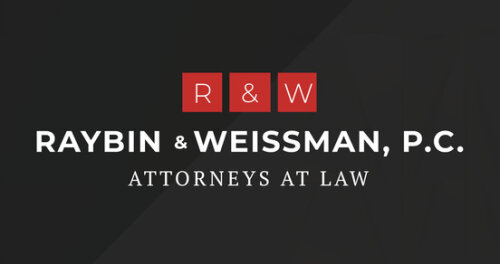Best Commercial Litigation Lawyers in Nashville
Share your needs with us, get contacted by law firms.
Free. Takes 2 min.
List of the best lawyers in Nashville, United States
About Commercial Litigation Law in Nashville, United States
Commercial litigation covers legal disputes that arise in the course of business. In Nashville, Tennessee, commercial litigation can involve contracts, collections, partnership and shareholder disputes, business torts, intellectual property conflicts, franchising issues, real estate and leasing disputes, and claims for injunctive relief or declaratory judgments. Cases may be brought in Tennessee state courts - including Davidson County trial courts - or in federal court if there is a federal question or diversity jurisdiction. The practice blends knowledge of Tennessee statutes, contract law, the Uniform Commercial Code, court procedures, and local court rules. Nashville is a growing commercial center, so litigators there are experienced with both local business dynamics and the procedural nuances of state and federal courts in the Middle Tennessee region.
Why You May Need a Lawyer
Commercial disputes often involve complex facts, multiple parties, significant sums of money, and strict procedural deadlines. You may need a lawyer if you are facing any of the following situations: a breach of a written contract where damages or specific performance are at issue; persistent nonpayment or collection problems with a customer or supplier; disputes between business owners or shareholders over management, distribution of profits, or ownership interests; allegations of fraud, tortious interference, or unfair competition; conflicts over commercial leases or property rights; enforcement or defense of noncompete and confidentiality agreements; urgent needs for injunctive relief to prevent irreparable harm; or arbitration and mediation under contract provisions. A lawyer helps evaluate legal claims, preserve evidence, navigate court or arbitration rules, estimate costs and likely outcomes, and represent your interests at negotiation, mediation, trial, or appeal.
Local Laws Overview
Commercial litigation in Nashville is governed by a mix of state statutes, statewide court rules, and local practice rules. Key legal frameworks include the Tennessee Code Annotated for statutory obligations and remedies, and the Tennessee Rules of Civil Procedure and Tennessee Rules of Evidence for trial practice. Sales of goods and secured transactions are governed by Tennessee's adoption of the Uniform Commercial Code, which affects disputes over contracts for the sale of goods and commercial financing. Davidson County trial courts - namely Circuit and Chancery Courts - commonly hear complex commercial matters. Many commercial matters also proceed in the United States District Court for the Middle District of Tennessee when federal jurisdiction exists. Local rules for the Middle District of Tennessee and standing orders for Davidson County courts can affect case management, discovery timelines, and ADR requirements. Tennessee has established procedures for obtaining injunctive relief and temporary restraining orders, and state appellate review proceeds to the Tennessee Court of Appeals and ultimately the Tennessee Supreme Court. In federal cases, appeals go to the Sixth Circuit Court of Appeals. Parties should also consider statutory limitations periods - for example, different types of claims have different deadlines to start suit - and rules about service, venue, and the calculation of damages. Many commercial contracts used in Nashville include clauses on forum selection, governing law, and mandatory arbitration, which can significantly change where and how disputes are resolved.
Frequently Asked Questions
What counts as commercial litigation?
Commercial litigation refers to civil disputes arising out of business relationships and commercial transactions. Typical matters include breach of contract, collections, partnership and shareholder disputes, business torts like fraud or tortious interference, lease and real estate disputes for commercial properties, intellectual property disputes in a business context, and disputes over mergers and acquisitions or business dissolutions.
Which courts handle commercial disputes in Nashville?
State trial courts in Davidson County - Circuit Court and Chancery Court - handle many commercial disputes. If a case involves a federal legal issue or parties from different states with sufficient amount in controversy, the United States District Court for the Middle District of Tennessee may hear the case. Appeals from state trial courts progress to the Tennessee Court of Appeals and then the Tennessee Supreme Court. Federal appeals go to the Sixth Circuit.
How soon should I contact an attorney?
Contact an attorney as soon as you suspect a legal dispute or when you receive a demand letter, complaint, or notice of arbitration. Early involvement helps preserve evidence, prevent accidental waivers of rights, meet statutory deadlines, and potentially resolve the dispute short of litigation. Some remedies, like injunctions, require immediate action to avoid irreparable harm.
What are the common timelines and costs for commercial litigation?
Timelines vary widely depending on complexity, court congestion, and whether the case settles. Simple cases may resolve in months; complex commercial cases can take a year or more to reach trial. Costs depend on attorney rates, discovery needs, expert witnesses, and filing fees. Commercial litigation often uses hourly billing with retainers, though alternative fee arrangements may be possible. Discuss cost estimates, billing practices, and litigation budgets with prospective lawyers before hiring.
Can I be forced into arbitration?
If your contract contains a valid and enforceable arbitration clause, you may be required to arbitrate disputes rather than litigate in court. Courts generally enforce arbitration clauses, though there are exceptions for unconscionability, scope disputes, or statutory limits. Arbitration has different procedures and can limit appeals, so review agreement terms early and consult counsel about enforceability and strategy.
What should I do to preserve evidence?
Immediately take steps to preserve all relevant documents, emails, texts, invoices, contracts, accounting records, and electronic data. Put custodians on notice not to delete files, implement a litigation hold if applicable, and secure physical evidence. Avoid altering documents or communicating about the dispute in a way that could be construed as spoliation. Preservation is critical for discovery and court proceedings.
How does discovery work in Tennessee commercial cases?
Discovery allows parties to obtain information and evidence from one another through interrogatories, document requests, depositions, and requests for admissions. Tennessee follows rules that limit discovery to matters relevant to claims or defenses and proportional to the needs of the case. Discovery disputes may require court motions for protection or to compel compliance. Effective discovery strategy can determine the strength of a case and settlement leverage.
Can I recover attorney fees and costs?
In Tennessee, recovery of attorney fees depends on statute, contract, or specific court rules. Some statutes allow fee awards for certain claims, and many commercial contracts include prevailing-party attorney-fee provisions. Without a contractual or statutory basis, each party typically pays its own fees. Courts will enforce valid fee-shifting clauses unless they are unconscionable or otherwise unenforceable.
What remedies are available in commercial litigation?
Remedies can include monetary damages for losses, specific performance requiring a party to perform contractual obligations, rescission of contracts, injunctive relief to prevent ongoing harm, declaratory judgments to clarify legal rights, and attorney-fee awards where authorized. The proper remedy depends on the claim, the evidence, and legal standards under Tennessee law or applicable federal law.
What if the opposing party is located outside Tennessee?
Jurisdiction and venue become important if a party is out of state. A Tennessee court can assert jurisdiction if the out-of-state party has sufficient contacts with the state or if the contract includes a Tennessee forum-selection clause. In some cases, you may need to litigate in the other party's state or pursue enforcement of a judgment across state lines. A lawyer can evaluate jurisdictional issues and the best forum to pursue your case.
Additional Resources
There are several local and statewide resources to consult when dealing with commercial litigation. The Tennessee Code Annotated and the Tennessee Rules of Civil Procedure are primary sources for statutes and practice rules. The Administrative Office of the Courts provides administrative guidance and local rules. The United States District Court for the Middle District of Tennessee publishes local rules and procedures for federal cases in the region. For lawyer referrals and ethical guidance, consider the Tennessee Bar Association and the Nashville Bar Association. For alternative dispute resolution, national and regional providers such as arbitration and mediation services are commonly used. For business filings, corporate records, or service of process information, the Tennessee Secretary of State and the Davidson County Clerk are relevant offices. Finally, small business assistance and mediation resources may be available through local small business development centers and the U.S. Small Business Administration local office.
Next Steps
If you need legal assistance for a commercial dispute in Nashville, start by documenting the relevant facts and collecting all related contracts, communications, invoices, and financial records. Preserve evidence and halt any routine document deletion. Prepare a concise timeline of events and a short statement of what outcome you seek. Schedule an initial consultation with an attorney who practices commercial litigation in Nashville - ask about their experience with similar cases, courtroom experience, fee structure, anticipated costs, and case strategy. If you have an upcoming deadline or received formal notice, mention that when you contact counsel so they can advise on immediate steps. Consider whether a demand letter, negotiation, or mediation could resolve the matter quickly and cost-effectively. Finally, confirm that any attorney you hire is licensed in Tennessee and, if applicable, admitted to practice in the federal courts where your case might proceed.
Lawzana helps you find the best lawyers and law firms in Nashville through a curated and pre-screened list of qualified legal professionals. Our platform offers rankings and detailed profiles of attorneys and law firms, allowing you to compare based on practice areas, including Commercial Litigation, experience, and client feedback.
Each profile includes a description of the firm's areas of practice, client reviews, team members and partners, year of establishment, spoken languages, office locations, contact information, social media presence, and any published articles or resources. Most firms on our platform speak English and are experienced in both local and international legal matters.
Get a quote from top-rated law firms in Nashville, United States — quickly, securely, and without unnecessary hassle.
Disclaimer:
The information provided on this page is for general informational purposes only and does not constitute legal advice. While we strive to ensure the accuracy and relevance of the content, legal information may change over time, and interpretations of the law can vary. You should always consult with a qualified legal professional for advice specific to your situation.
We disclaim all liability for actions taken or not taken based on the content of this page. If you believe any information is incorrect or outdated, please contact us, and we will review and update it where appropriate.









